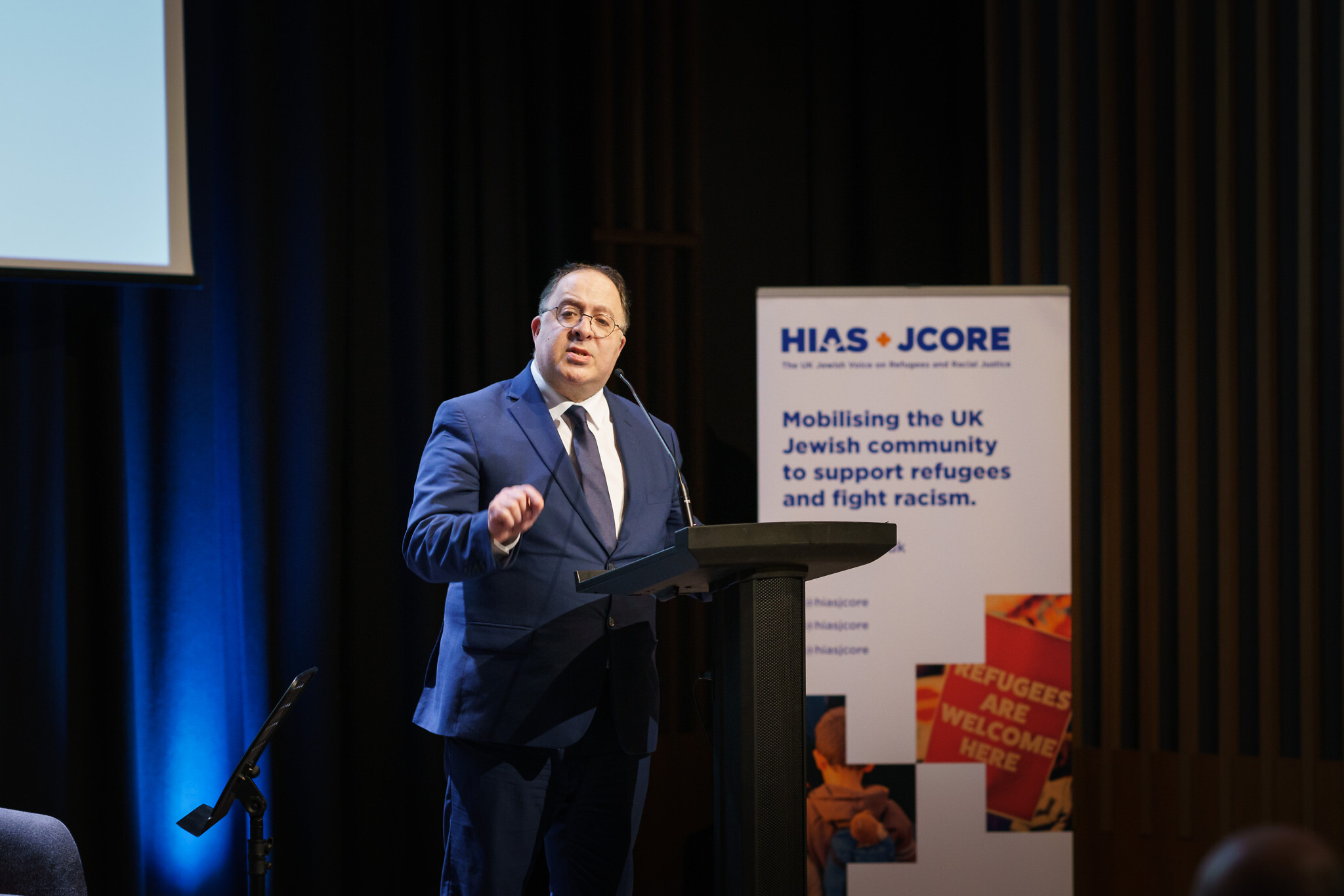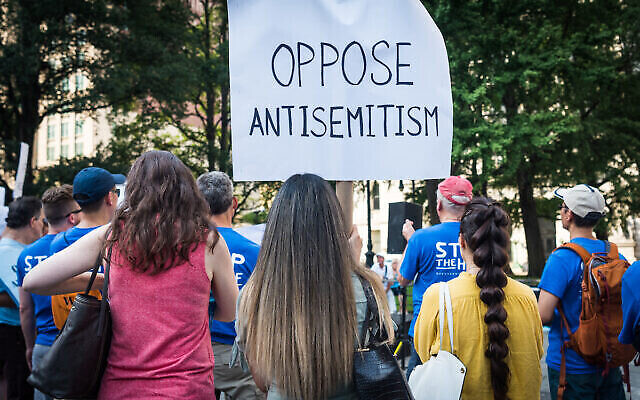OPINION: Jewish experience is complicated
Can Britain become a nation that champions difference and manages argument, asks the executive director of HIAS+JCORE
I have always understood Judaism as a religion of compassion. In fact, a famous 12th century rabbi who lived in Spain, Egypt and died in Israel, explained that a Jew must be ‘merciful, humble and kind’. The famous first century Rabbi Hillel was confronted famously by someone who wished to convert to Judaism and was asked to teach him the whole Torah (Jewish Bible) to him while standing on one leg. Hillel replied – ‘do not do unto others what you would not want them to do to you – the rest is commentary’.
These values have guided me over 20 years of being a community Rabbi, believing strongly in the dignity of others and the responsibility that my community had to improve wider society.
It also led me to leave my position as a communal Rabbi and run an organisation devoted to working for greater dignity for refugees and asylum seekers and also devoted to fighting racism.
So, a few months ago I took over the helm of an organisation called HIAS+JCORE. JCORE, or the Jewish Council for Racial Equality was originally founded in 1976 by Dr Edie Friedman who believed that there needed to be a Jewish voice that fought the open racism being experienced by minority communities at that time.
Edie ran the organisation for 46 years, developing educational material and building support programmes for refugees and those seeking asylum. We have now combined with a now global Jewish organisation supporting refugees called HIAS (Hebrew Immigrant Aid Society).
With my team, I am looking to take Edie’s vision forward. We look to develop our advocacy, networking and media reach on the issues we care about and reach a wider span of the Jewish community to support our values.

Let’s face it – we live in a divided time. Issues surrounding refuge and asylum are turned by many leaders into a culture war, ‘them or us’ issue. Multiculturalism itself is under strain, criticised by many for creating a sense of ‘silos’, communities sticking to themselves, unable to reach out to the other.
But added to this, as an organisation that represents Jewish values, we are also rooted in Jewish experience. Of course, this experience has often been one of refuge and displacement. Many Jewish people will explain how they feel sympathy with the plight of refugees, as they themselves, or their relatives in previous generations were also refugees. In fact, the foundational moment of the Jewish people in Egypt over 3000 years ago, was all about refuge and being strange in a Land. The Torah itself states ‘You shall love the stranger, as you were strangers in Egypt.’
Today, Jewish experience is complicated. In the UK for example, on the one hand Jewish people very much feel part of the fabric of society and most already follow 2 or 3 generations at least. On the other hand, antisemitism continues to exist at stubbornly high levels and in reaction to the present conflict in Gaza, has risen dramatically.
Many Jewish people are subscribing to the thesis, put forward in a book by David Baddiel, that Jews don’t count. In other words, in the spectrum of efforts to erase racism, many Jewish people feel that not enough of this effort is put into understanding antisemitism. There are differing views on this, although a large proportion of UK Jews have learned over recent years to suspect the political left or far-left. It is there that many see a blindness to antisemitism due to Jewish whiteness, class, a colonialist approach to the State of Israel and a historical Marxist phenomenon of antisemitism.
So there is clearly a lot of work to be done. The work of Dave Rich of the CST is very helpful in this regard, looking as he does at the conspiratorial basis for antisemitism. This tendency to rely on rehashed historical conspiracies and create new ones can be located in a desire to sow a fear of the ‘other’.
This may well be at the root of much Islamophobia, as well as racism against Black and Asian communities. This hatred borne of fear can rise up at different times, or sometimes by incredibly stubborn and persistent. In UK society, I would suggest that an individual who is black, may experience a greater amount of structural racism than someone who is Jewish. The generational and historical fear of Black people will express itself for example through barriers to the legal system as David Lammy recorded or being profiled through stop and search.
But consider the massive rise in antisemitism now issuing forth in the shadow of the Israel/Gaza conflict. A great deal of hate has been unleashed through the guise of anger against Israel but is clearly more than that. The Hamas attack on the south of Israel on 7th October spoke to the worst fears of Jewish people across the world. It contained echoes of the Holocaust which were frightening. As a Jew, I don’t feel real structural barriers in society. But I think twice now while riding the Tube with my Jewish skullcap on. My children now cover any obvious signs of Jewishness on their school uniform.
I would like my organisation therefore, to be active in probing how given radically different ways of looking at the world, and at conflicts, we can live together within our UK society. And this is hard. This is tough. There is a Jewish saying, from over 2000 years ago – ‘Any argument that is for the sake of Heaven, will go on for ever: any argument not for the sake of Heaven will not go on for ever’. If in my difference with the other, I want to ignore their position and even erase it, that is not a true argument. A true argument is when one respects the position of the other, and when each ensure and sustain the place of the other.
The challenge now is this. Can Britain become a nation that champions difference, and manages argument. We may have accomplished the former. The latter still needs work.
- Rabbi David Mason is the executive director of HIAS+JCORE. He previously served as rabbi of Muswell Hill Synagogue for over 14 years

Thank you for helping to make Jewish News the leading source of news and opinion for the UK Jewish community. Today we're asking for your invaluable help to continue putting our community first in everything we do.
For as little as £5 a month you can help sustain the vital work we do in celebrating and standing up for Jewish life in Britain.
Jewish News holds our community together and keeps us connected. Like a synagogue, it’s where people turn to feel part of something bigger. It also proudly shows the rest of Britain the vibrancy and rich culture of modern Jewish life.
You can make a quick and easy one-off or monthly contribution of £5, £10, £20 or any other sum you’re comfortable with.
100% of your donation will help us continue celebrating our community, in all its dynamic diversity...
Engaging
Being a community platform means so much more than producing a newspaper and website. One of our proudest roles is media partnering with our invaluable charities to amplify the outstanding work they do to help us all.
Celebrating
There’s no shortage of oys in the world but Jewish News takes every opportunity to celebrate the joys too, through projects like Night of Heroes, 40 Under 40 and other compelling countdowns that make the community kvell with pride.
Pioneering
In the first collaboration between media outlets from different faiths, Jewish News worked with British Muslim TV and Church Times to produce a list of young activists leading the way on interfaith understanding.
Campaigning
Royal Mail issued a stamp honouring Holocaust hero Sir Nicholas Winton after a Jewish News campaign attracted more than 100,000 backers. Jewish Newsalso produces special editions of the paper highlighting pressing issues including mental health and Holocaust remembrance.
Easy access
In an age when news is readily accessible, Jewish News provides high-quality content free online and offline, removing any financial barriers to connecting people.
Voice of our community to wider society
The Jewish News team regularly appears on TV, radio and on the pages of the national press to comment on stories about the Jewish community. Easy access to the paper on the streets of London also means Jewish News provides an invaluable window into the community for the country at large.
We hope you agree all this is worth preserving.






















